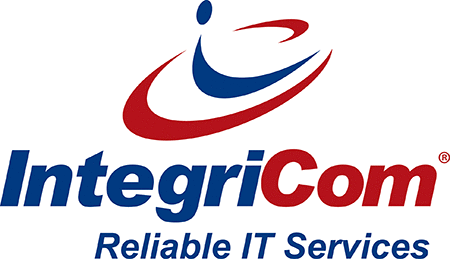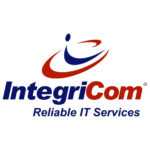A well-planned IT strategy is crucial for maintaining security, efficiency, and long-term growth in today’s fast-moving business environment. Companies must balance internal control with specialized expertise to stay competitive and agile. Deciding between managing technology internally or partnering with external professionals can influence costs, scalability, and overall performance. Each option offers unique advantages and potential challenges that directly impact daily operations and future expansion. In this blog, you’ll explore the key considerations that help determine whether in-house IT or IT consulting best supports your business goals.
Key Takeaways
- In-house IT teams incur high fixed costs, while IT consulting firms offer cost-effective, project-based solutions that enhance financial flexibility for businesses.
- IT consulting provides access to specialized expertise and industry knowledge, enabling businesses to implement tailored solutions and stay competitive.
- Consulting services offer flexibility and scalability, allowing businesses to adapt IT resources swiftly, enhance operational efficiency, and align with evolving demands.
Cost Efficiency: Comparing In-House IT and IT Consulting
An in-house IT team entails significant expenses such as salaries, benefits, training, and infrastructure. These fixed costs can heavily strain a company’s budget, especially for small to medium-sized enterprises. Conversely, IT consulting services can be more cost-effective by transforming fixed costs into project-based expenses and optimizing IT spending, including services in-house.
Employing external consultants often results in significant cost savings and cost effectiveness. Businesses frequently discover that using consultants for similar tasks costs two to three times less than maintaining an in-house IT team. This efficiency enables better resource allocation to other critical areas, thus improving overall operations.
Additionally, consulting firms provide adaptable, cost-effective solutions tailored to specific business needs. Leveraging IT consultants’ expertise allows companies to gain financial flexibility and operational efficiency without incurring high infrastructure costs.
Access to Specialized Expertise and Industry Knowledge
One of the significant advantages of IT consulting firms is their access to specialized knowledge and industry best practices. These firms employ IT consultants who regularly stay abreast of the latest trends and technologies, ensuring their clients remain competitive in their respective industries.
Consulting services bring diverse expertise that internal teams might lack. External consultants offer deep knowledge in various fields, enhancing project outcomes and reducing errors and delays. This expertise enables businesses to implement tailored solutions for their unique challenges and requirements, especially when considering consulting vs other approaches, where external consultants can make all the difference.
Furthermore, hiring external consultants provides businesses with a competitive edge through their deep organizational knowledge and technological insights. Access to this specialized expertise ensures effective implementation of innovative solutions, leading to successful outcomes.
Flexibility and Scalability of IT Solutions

The flexibility and scalability of IT solutions are crucial for businesses looking to adapt to changing demands and achieve sustainable growth. IT consulting services offer flexible IT environments that seamlessly integrate new technologies without disrupting operations.
Consulting firms develop tailored solutions that meet specific business needs, offering fresh ideas and support that enhance flexibility. Outsourcing IT management allows businesses to adapt resources swiftly without substantial hardware investments, ensuring cost efficiency and continuity.
Dedicated IT teams from consulting firms can scale according to project demands, providing essential flexibility for medium-sized businesses and beyond. This adaptability is especially beneficial as businesses grow and their IT needs become more complex, requiring scalable services to manage changing demands effectively.
Control and Accountability in IT Management
A major benefit of maintaining an internal IT department is the direct control and accountability it offers. In-house IT teams exhibit stronger ownership and responsibility due to their direct involvement with the organization, leading to better outcomes and tailored solutions that effectively meet specific business needs, utilizing internal resources and fostering collaboration within the internal team.
Collaboration between in-house IT teams and other departments fosters a deeper understanding of IT requirements. This synergy enables quick implementation of changes and prompt issue resolution, enhancing IT responsiveness and more effectively managing workflows and security measures with in-house teams.
Strategic Focus and Core Business Functions

Outsourcing IT tasks enables businesses to allocate more resources toward innovation and strategic planning. By converting fixed IT costs into variable expenses, organizations can enhance their financial flexibility and focus on their core business functions. Organizations weighing long-term growth benefits can gain clarity by understanding what managed IT services are and why you need them, ensuring their technology investments align with both strategic objectives and evolving operational needs.
External IT providers offer advanced technologies and expertise that would be expensive to develop in-house. This access to specialized knowledge aids businesses in developing strategies and implementing initiatives that align with business objectives and enhance operational efficiency, with additional external support.
Additionally, outsourcing IT functions enhances organizational agility and responsiveness to market changes. Consultants can identify recurring needs for services, ensuring the development of long-term technology roadmaps that adapt to evolving operations and future demands.
Risk Management and Compliance
Risk management and compliance are crucial for business continuity and protecting a company’s reputation. IT consulting firms offer tailored strategies to address specific industry challenges.
Professional implementers ensure new systems meet security standards from the outset, reducing the risk of cost overruns and project failures. Cultivating a company’s culture of compliance throughout the organization ensures collective responsibility, minimizing financial losses, and enhancing security through process improvement.
Implementation Speed and Adoption of New Technologies
IT consulting services can expedite project implementation by quickly deploying solutions and effectively addressing technical challenges. Organizations partnering with an IT consultant for technology implementation often achieve faster time-to-value, maintaining a competitive market edge.
Consultants aid in vendor evaluation and technology integration, enabling swift adoption of new technologies and optimization of their use. The expertise and proven processes of IT consulting firms result in faster returns on investment and enhanced operational performance.
Continuous Monitoring and Support
Continuous monitoring and ongoing support are vital for system reliability and business continuity. Managed IT services offer:
- 24/7 support, crucial for businesses operating beyond standard hours
- Constant monitoring to identify potential issues early
- Prevention of costly downtime
- Ensuring consistent support
Proactive maintenance provided by IT consulting firms enhances system reliability and reduces data compromise risks. 24/7 IT support enables internal IT staff to focus on core responsibilities, improving work-life balance and maintaining productivity by swiftly addressing IT concerns, ensuring all the necessary infrastructure is in place.
Objective Insights and Strategic Roadmaps
External consultants offer objective insights and an outsider’s perspective, crucial for strategic planning. Their unbiased evaluations help uncover outdated processes and identify improvement areas, facilitating the creation of development plans and developing strategies for strategic initiatives, all while providing an external perspective, alongside external specialists.
Consultants provide broad views and clear directions that align with industry trends and organizational goals. Incorporating consultant insights allows organizations to create long-term technology roadmaps that consider current operations and future objectives.
The expertise of consulting firms in developing high-impact strategies and addressing complex organizational challenges underscores the value of external perspectives in strategic planning. A consulting firm can provide valuable insights that enhance decision-making processes.
Making the Right IT Choice for Long-Term Success

Selecting between in-house IT and IT consulting ultimately depends on your organization’s size, growth plans, and technology requirements. An internal team offers direct oversight and immediate support, while external consultants provide specialized expertise and cost flexibility. Blending these approaches can also be effective, ensuring both control and scalability as your business evolves. Evaluating operational goals, budget, and risk tolerance will help determine which model delivers the most value and stability over time.
At IntegriCom, we help businesses gain a competitive edge with tailored technology solutions, including managed it services in Lawrenceville designed for reliability and growth. Our team provides strategic support and proactive maintenance to streamline operations, protect critical data, and keep your systems running efficiently. Partner with us to build a secure, scalable IT foundation that adapts to your business needs today and in the future.
Frequently Asked Questions
What are the cost implications of maintaining an in-house IT team?
Maintaining an in-house IT team leads to significant costs, encompassing salaries, benefits, continuous training, and necessary infrastructure expenditures. Consequently, organizations should carefully assess these financial implications against their operational needs.
How do IT consulting services enhance flexibility and scalability?
IT consulting services enhance flexibility and scalability by providing adaptable IT environments that integrate new technologies and adjust resources according to project needs, ultimately ensuring cost efficiency and business continuity.
What are the benefits of outsourcing IT functions?
Outsourcing IT functions enables organizations to enhance innovation and strategic focus while gaining access to advanced technologies, thereby increasing agility and responsiveness to market dynamics. This strategic approach ultimately leads to improved overall efficiency and competitiveness.
How do IT consulting firms help manage risks and ensure compliance?
IT consulting firms help manage risks and ensure compliance by offering customized compliance strategies, implementing secure systems, and promoting a culture of compliance to mitigate financial losses and enhance security.


